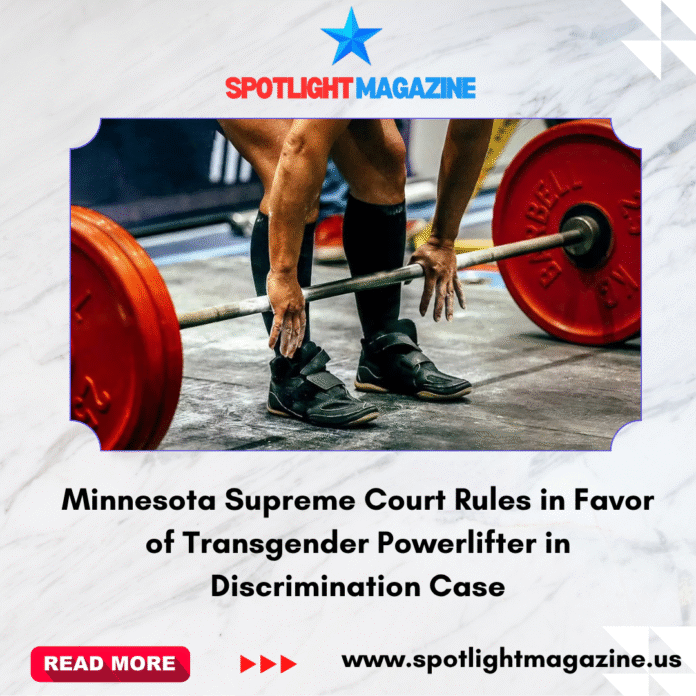The Minnesota Supreme Court has ruled that USA Powerlifting (USAPL) discriminated against a transgender athlete, JayCee Cooper, by refusing to let her compete in the women’s category. The court said the organization’s policy banning transgender women from women’s competitions violated the Minnesota Human Rights Act (MHRA), which protects people from discrimination based on sexual orientation and gender identity.
The decision, issued on Wednesday, stated that Cooper was unlawfully denied equal access to a public space because of her transgender status. Chief Justice Natalie Hudson wrote that USAPL’s rule was “facially discriminatory” and amounted to direct evidence of bias under state law. The court emphasized that organizations open to the public cannot deny services or opportunities to anyone because they are transgender.
Cooper first filed a complaint with the Minnesota Department of Human Rights in 2019 after USAPL barred her from competing. She argued that the policy unfairly singled out transgender athletes and asked the department to uphold a fair standard allowing all athletes to compete according to their gender identity. When the issue was not resolved, Cooper filed a lawsuit in 2021 accusing USAPL of discrimination.
In 2023, the Ramsey County District Court ruled in her favor, saying she had indeed been discriminated against. The decision was later upheld by the Minnesota Court of Appeals in 2024, which confirmed that excluding transgender athletes from competition violates the MHRA. The case was then sent back to the lower court to determine whether USAPL had a legitimate business reason for its policy.
USAPL argued that the ban was meant to maintain fairness in competition, claiming that transgender women might have a physical advantage. However, the court found no convincing evidence to support that claim. Citing several scientific studies, the ruling noted that transgender athletes, after transitioning, are more comparable in ability to their gender identity. It also pointed out that both transgender and cisgender athletes naturally vary in skill and performance, making broad assumptions about advantage inaccurate.
Because the organization’s justification was weak, the court concluded that its policy was discriminatory and violated state law. Chief Justice Hudson wrote that USAPL could not exclude transgender women from competing simply because of their gender identity and that doing so undermines the principles of fairness and inclusion that Minnesota law seeks to protect.
Following the ruling, Jess Braverman, Legal Director of Gender Justice — the group that represented Cooper — said the decision was a major step forward for equality. “This ruling sends a clear and powerful message,” Braverman said. “Transgender people have the right to enjoy public spaces in Minnesota, whether it’s sports, restaurants, or movie theaters, without being targeted or excluded.”
She called the outcome “a historic victory for fairness, equity, and the fundamental rights of all Minnesotans.” Braverman also acknowledged that the broader fight for transgender rights is ongoing, noting that many states across the country continue to debate or pass laws restricting transgender participation in sports and other public areas. She said Gender Justice would keep working to ensure everyone has the right to compete, belong, and thrive without fear of discrimination.
The court’s decision is being hailed as a landmark moment in Minnesota, reinforcing that sports organizations must follow state laws protecting equality. For Cooper and many others in the transgender community, it marks not just a personal victory but also a statement that fairness in sports must include everyone — regardless of gender identity.


